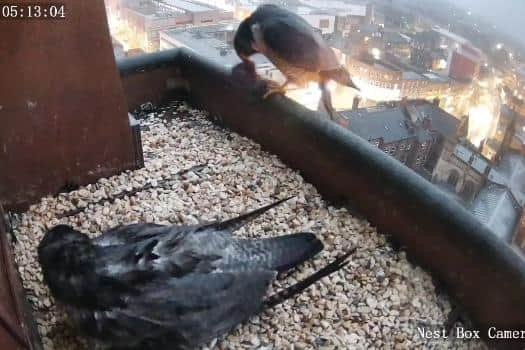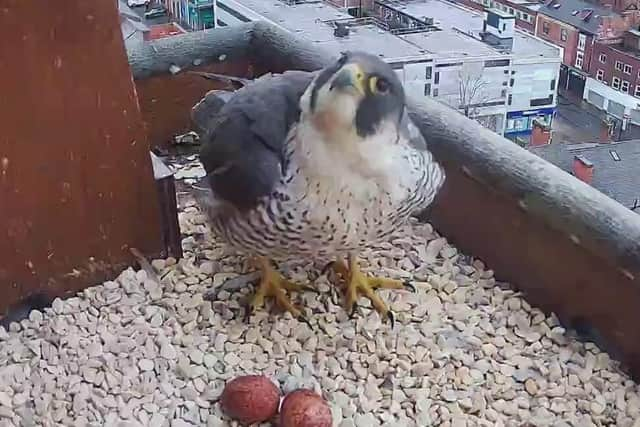Watch: A bird's eye view as Wakefield Cathedral welcomes two adorable peregrine falcon chicks
and live on Freeview channel 276
It is welcome news for Wakefield Peregrine Project, the charity that oversees the webcams that watch over the birds, after the previous female peregrine who used the nest died last year after sustaining an injury.
The new mating partner arrived in March and laid three eggs, with two surviving the month-long incubation period.
The chickens hatched yesterday, Thursday, April 27.
Advertisement
Hide AdAdvertisement
Hide Ad

Francis Hickenbottom, member of the Wakefield Peregrine Project, said: “We are quite relieved because we’ve had the same breeding pair for eight years, and the female died in the autumn of last year.
"This is a new lady. This is probably the first time she has bred, and things can go wrong because the bird is inexperienced. The eggs took a little bit longer to hatch than usual, but now we’ve got two chicks.”
Peregrines are a schedule one bird in the UK, which means they have the highest level of protection and it is illegal to disturb an ‘active nest’ without a license.
The birds are wild and were not introduced to each other.


"Wakefield Cathedral is a prime site for a nest because it is very secure, they are immune to persecution from predators here,” Duncan added.
Advertisement
Hide AdAdvertisement
Hide AdThe chicks will start to leave the nest in five to six weeks and will become fully independent two or more months later, according to the RSPB.
Less than a third of peregrines reach breeding age but those that do can expect to live between five and six years.